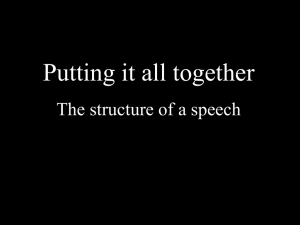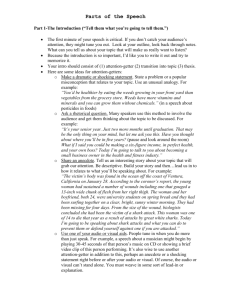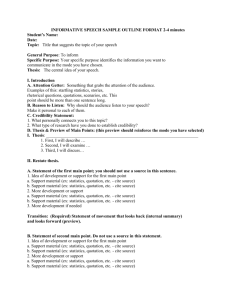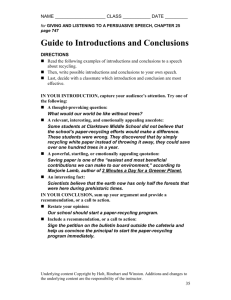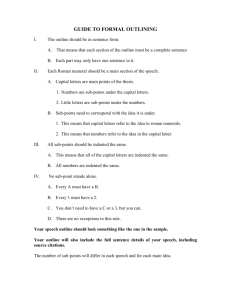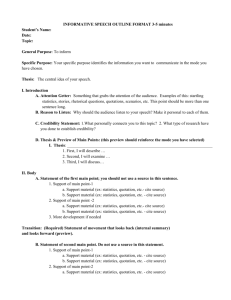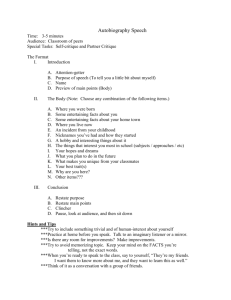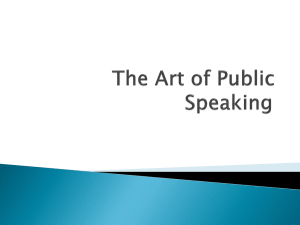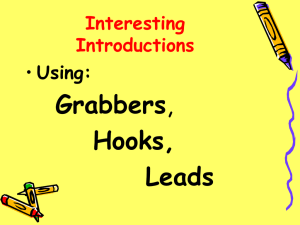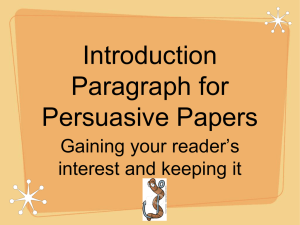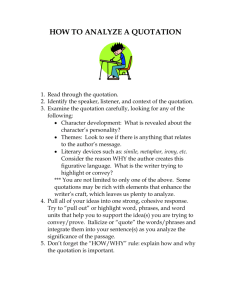Informative Speech outline template
advertisement
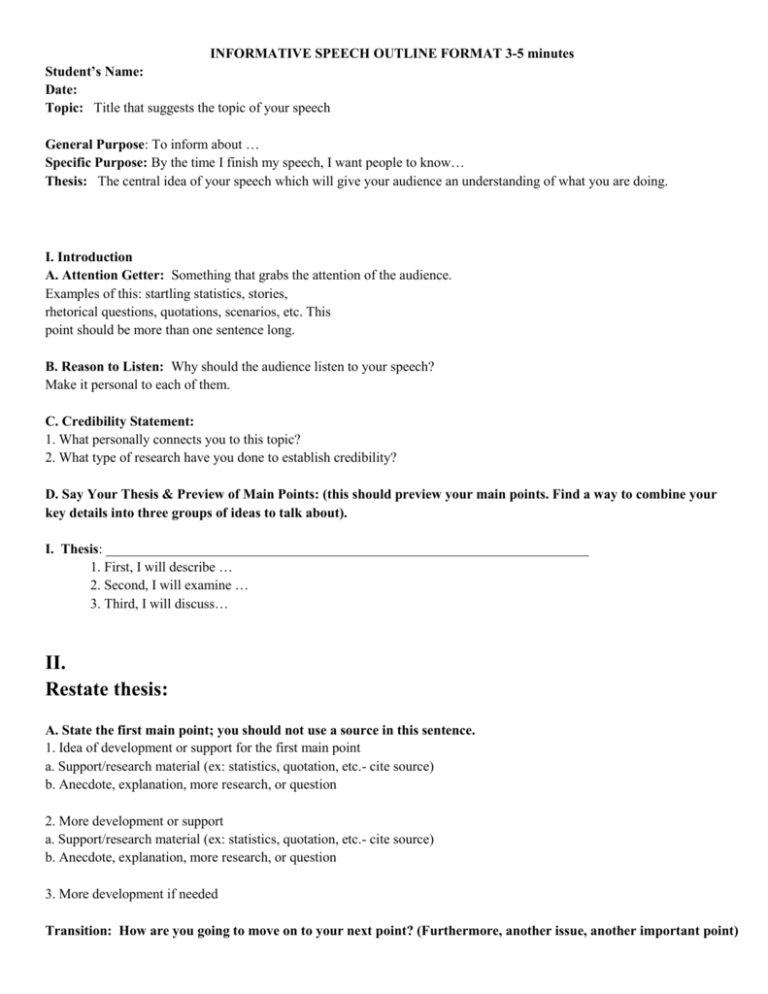
INFORMATIVE SPEECH OUTLINE FORMAT 3-5 minutes Student’s Name: Date: Topic: Title that suggests the topic of your speech General Purpose: To inform about … Specific Purpose: By the time I finish my speech, I want people to know… Thesis: The central idea of your speech which will give your audience an understanding of what you are doing. I. Introduction A. Attention Getter: Something that grabs the attention of the audience. Examples of this: startling statistics, stories, rhetorical questions, quotations, scenarios, etc. This point should be more than one sentence long. B. Reason to Listen: Why should the audience listen to your speech? Make it personal to each of them. C. Credibility Statement: 1. What personally connects you to this topic? 2. What type of research have you done to establish credibility? D. Say Your Thesis & Preview of Main Points: (this should preview your main points. Find a way to combine your key details into three groups of ideas to talk about). I. Thesis: ______________________________________________________________________ 1. First, I will describe … 2. Second, I will examine … 3. Third, I will discuss… II. Restate thesis: A. State the first main point; you should not use a source in this sentence. 1. Idea of development or support for the first main point a. Support/research material (ex: statistics, quotation, etc.- cite source) b. Anecdote, explanation, more research, or question 2. More development or support a. Support/research material (ex: statistics, quotation, etc.- cite source) b. Anecdote, explanation, more research, or question 3. More development if needed Transition: How are you going to move on to your next point? (Furthermore, another issue, another important point) B. Statement of second main point. Do not use a source in this statement. 1. Idea of development or support for the first main point a. Support/research material (ex: statistics, quotation, etc.- cite source) b. Anecdote, explanation, more research, or question 2. More development or support a. Support/research material (ex: statistics, quotation, etc.- cite source) b. Anecdote, explanation, more research, or question 3. More development if needed Transition: How are you going to move on to your next point? (Furthermore, another issue, another important point) C. Statement of third main point. Do not use a source in this statement. 1. Idea of development or support for the first main point a. Support/research material (ex: statistics, quotation, etc.- cite source) b. Anecdote, explanation, more research, or question 2. More development or support a. Support/research material (ex: statistics, quotation, etc.- cite source) b. Anecdote, explanation, more research, or question 3. More development if needed III. Conclusion A. Review of Main Points: 1. Restate your first main point. 2. Restate your second main point. 3. Restate you third main point. B. Restate Thesis: Exact same as above. C. Closure: Develop a creative closing that will give the speech a sense of ending. This point may be more than one sentence. You should refer back to your Attention Getter. References ● All references need to be cited. That means any website you use must show up HERE. ● Electronic sources must be credible. Sources from the .com domain are not to be used unless authorship is verifiable and authoritative. ( .edu, .gov, or .org domains are acceptable.) ● Double-Spaced; all references should be double-spaced and indented. ● Three sources minimum: You must have at least three sources cited in your outline and listed on your reference page. ● Make sure to provide all necessary information in the references.
